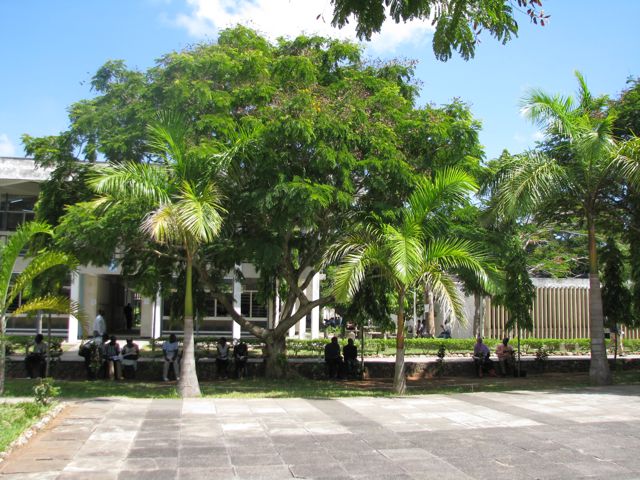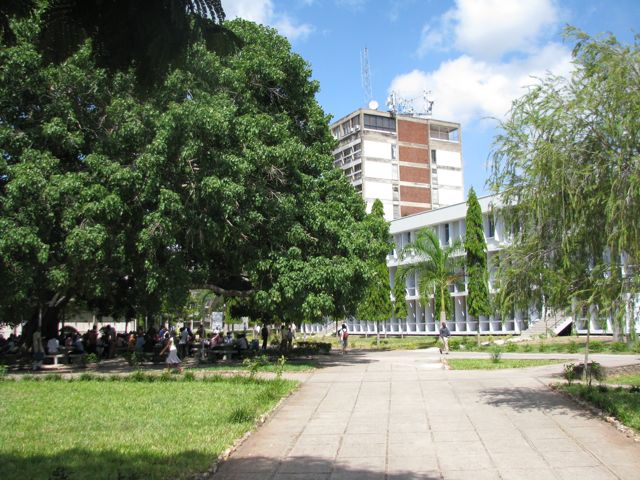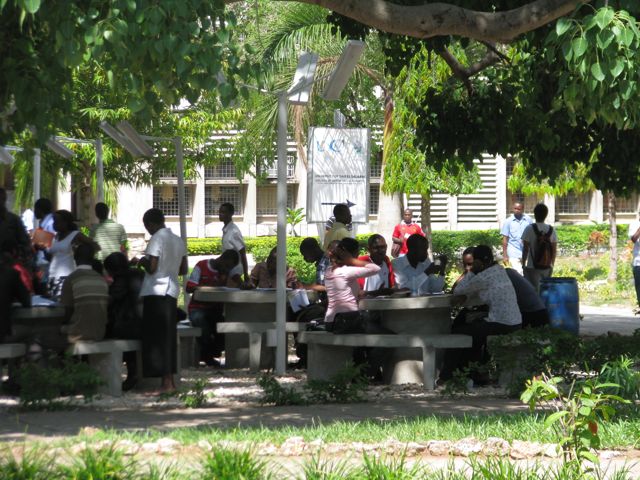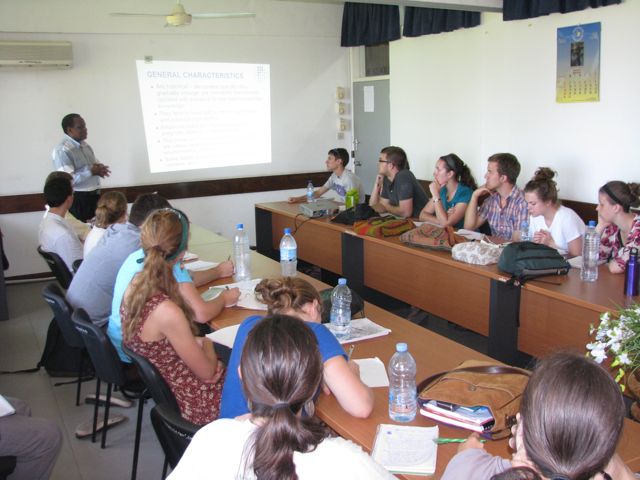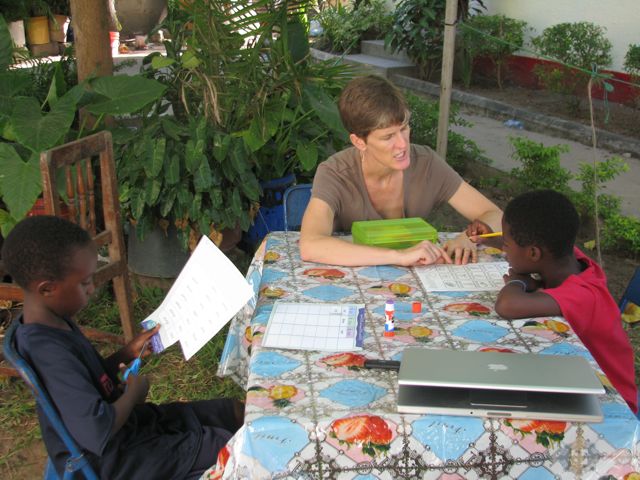University of Dar es Salaam
As you have begun to gather from previous posts, the daily schedule for students goes something like this. Anywhere between 7-8:30 a.m. students arrive at Upanga Church and we have time to connect, compare notes, and make sure everyone is healthy and doing well. Ryan, Donna, Mara, and Isaac all come to the church to see the students before Swahili. From 8:30 a.m. until 11:00 a.m. the GC students go to Swahili class and Donna home-schools Isaac and Mara in their outdoor classroom under the tree. Students are free to find their own lunch, explore town, catch up on reading/journaling, and complete a variety of investigative assignments from 11-2. In the afternoon we typically have a lecture or visit an organization/museum/or natural setting for a presentation or investigation. The students then leave for their host families soon after 4:00 to arrive by dark.
After Swahili class today, we had our first lecture at the University of Dar es Salaam. The students enjoyed seeing a new area of Dar and found the campus to be a welcoming and resftul area with green space, large shade trees, and no traffic! We arrived in time to eat lunch at the university cafeteria before the lecture.
We received a lecture from Dr. Yusufu Lawi, an environmental historian and well known scholar who has written extensively on Tanzanian history. He shared with us the varied environmental beliefs and philosophies present in pre-colonial communities in Tanzania, including how particular ethnic groups practiced taboos, which in many cases had the indirect effect of conserving natural resources. We had a good discussion, which included exploring whether our current society requires “modern” equivalents of taboos to help in protection and conservation of natural resources.
Students navigated their way home from “the hill”, as the University is affectionately called. It is perched up on an elevated area overlooking the city and affords an afternoon away from the bustle of town.





